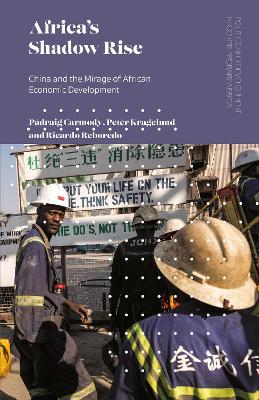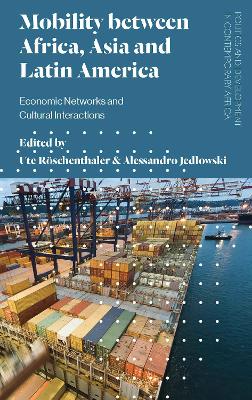Politics and Development in Contemporary Africa
2 total works
Africa's Shadow Rise
by Padraig Carmody, Peter Kragelund, and Ricardo Reboredo
For years economists have spoken of 'Africa rising', and despite the global financial crisis, Africa continues to host some of the fastest growing economies in the world.
Africa's Shadow Rise however argues that the continent's apparent economic 'rise' is essentially a mirage, driven by developments elsewhere - most particularly the expansion in China's economy. While many African countries have experienced high rates of growth, much of this growth may prove to be unsustainable, and has contributed to environmental destruction and worsening inequality across the continent. Similarly, new economic relationships have produced new forms of dependency, as African nations increasingly find themselves tied to the fortunes of China and other emerging powers.
Drawing on in-depth fieldwork in southern Africa, Africa's Shadow Rise reveals how the shifting balance of global power is transforming Africa's economy and politics, and what this means for the future of development efforts in the region.
Mobility between Africa, Asia and Latin America
Trade connections and cultural exchange between Africa and the rest of the global South have existed for centuries. Since the end of the Cold War, these connections have expanded and diversified dramatically, with emerging economies such as China, India, and Brazil becoming increasingly important both as sources of trade and as a destination for African migrants. But while these trends have attracted growing scholarly attention, there has so far been little appreciation of the sheer breadth and variety of this exchange, or of its deeper social impact.
This collection brings together a wide array of scholarly perspectives to explore the movement of people, commodities, and ideas between Africa and the wider global South, with rich empirical case studies ranging from Senegalese migrants in Argentina to Lebanese traders in Nigeria. The contributors argue that this exchange represents a form of 'globalization from below' which defies many of the prevailing Western assumptions about migration and development, and which can only be understood if we consider the full range and complexity of migrant experiences.
Multidisciplinary in scope, Mobility between Africa, Asia and Latin America is essential reading for students and scholars across the social sciences interested in the interconnected economic and social make-up of the global South.

